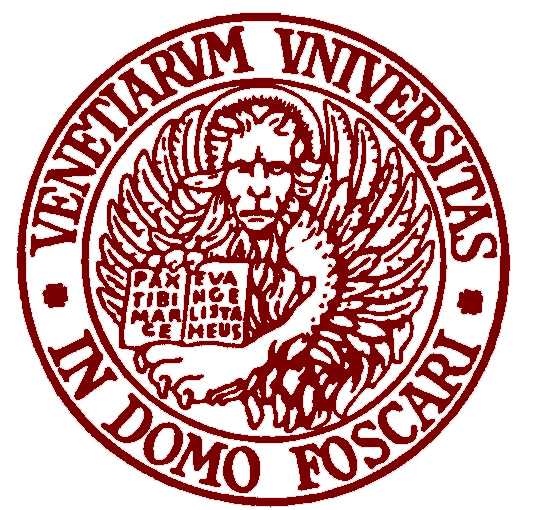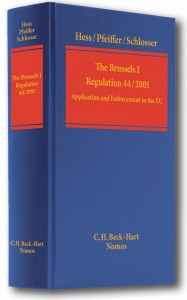New Service Regulation No 1393/2007 and Denmark (Update)
Following our recent post on the application of Reg. No 1393/2007 since 13 November 2008, and the issue of the participation of Denmark, we would like to point out an item published on the newsletter of the Danish Ministry of Justice (No 119 of 21 December 2007). The newsletter refers to an Administrative Order (Bekendtgørelse) issued by the Danish Minister for Justice, on the implementation of changes to the provisions of Reg. No 1348/2000 (that were already applicable in Denmark by virtue of the “parallel” agreement with the EC), starting from 13 November 2008.
Here’s an automatic translation (by Google Translate, not further revised) from Danish:
Order No. 1476 of 12 December 2007 implementing changes to the Service Regulation
The notice is published in the Government Gazette on 21 December 2007 and will enter into force on 30 December 2007. The Order shall not apply to service, conducted on 13 November 2008 or later.
The notice states that the codified Regulation No 1393/2007 on the service of judicial and extrajudicial documents in civil and commercial matters applies in this country. The consolidated Service Regulation comes into force on 30 December 2007 but must first apply from 13 November 2008. The notice also contains a number of detailed provisions similar to some of the provisions of the current Order No. 423 of 8 May 2007 on certain issues concerning the implementation of a parallel agreement on the service regulation, which lifted from 13 November 2008.
The Administrative Order can be found here (in Danish). Here’s an automatic translation (by Google Translate, not further revised) of its Articles 1 and 6 (on the entry into force and application):
Order on the implementation of changes to the Service Regulation
[…]
§ 1 – 1.The provisions of the European Parliament and Council Regulation No. 1393/2007 on the service of judicial and extrajudicial documents in civil and commercial matters and repealing Council Regulation No. 1348/2000 applies in this country.
2. Regulation reference to “Member States” also includes Denmark.
[…]
§ 6 – 1. These Regulations shall come into force on 30 December 2007 and applies to service carried out on 13 November 2008 or later.
2. Decree No. 423 of 8 May 2007 on certain issues concerning the implementation of a parallel agreement on the service be abolished, 13 November 2008.
Even from this very rough translation, it seems that Denmark has implemented administratively the provisions of the new Service Regulation, setting for its implementing measures the same dates of entry into force (30 December 2007) and application (13 November 2008) as those provided for by Art. 26 of Reg. No 1393/2007. This condition is required by Art. 3(4) of the “parallel” agreement (text) between the EC and Denmark on Reg. No 1348/2000, which reads as follows:
4. If the notification indicates that implementation can take place administratively the notification shall, moreover, state that all necessary administrative measures enter into force on the date of entry into force of the amendments to the Regulation or have entered into force on the date of the notification, whichever date is the latest.
The same condition was recalled in the document available on the European Judicial Atlas in Civil Matters that we mentioned in our previous post:
In accordance with Article 3(4) of the Agreement, the necessary administrative measures will take effect on the date of entry into force of Regulation (EC) No 1393/2007.
So, while the situation would appear quite clear on the Danish side (Denmark having fulfilled its obligations under the “parallel” agreement), there are still uncertainties on the EC side, at least from the information currently available to the public.



 Essentially, the bankruptcy proceedings were about the auditors, Coopers & Lybrand (as they were then). In August 2008, the action against them was still pending. However, proceedings had also been initiated against the directors of the company for distributing $ 15.5 million of dividends in 1991, in the suspect period. Some of the directors settled with the bankruptcy, but five did not. In August 2008, the latter were eventually sentenced to pay $ 9.7 million. Among the five were the president of Castor, a German national named Stolzenberg, and a Swiss national named Gambazzi.
Essentially, the bankruptcy proceedings were about the auditors, Coopers & Lybrand (as they were then). In August 2008, the action against them was still pending. However, proceedings had also been initiated against the directors of the company for distributing $ 15.5 million of dividends in 1991, in the suspect period. Some of the directors settled with the bankruptcy, but five did not. In August 2008, the latter were eventually sentenced to pay $ 9.7 million. Among the five were the president of Castor, a German national named Stolzenberg, and a Swiss national named Gambazzi.  Since the start of the English proceedings, the defendants had been subjected to a world wide Mareva injunction (now freezing order). As a result, they were under a variety of duties of disclosure that, they thought, were unacceptably far reaching. Some never appeared before English courts, but some did and complied for a while. At some point, however, they refused to provide any more information on their assets (which were situated abroad). They did not live in England, so there was not much the English court could do. But the Mareva injunction has been called one of the two nuclear weapons of English civil procedure. The English court pressed the nuclear button. Because they were not complying, the defendants were debarred from defending any action in England. This included the action on the merits. The English court then entered into a default judgment for close to € 400 million. There had been no trial, no assessment of the merits of the case. There was only a procedural sanction: you do not comply, your opponent will get whatever he asks for.
Since the start of the English proceedings, the defendants had been subjected to a world wide Mareva injunction (now freezing order). As a result, they were under a variety of duties of disclosure that, they thought, were unacceptably far reaching. Some never appeared before English courts, but some did and complied for a while. At some point, however, they refused to provide any more information on their assets (which were situated abroad). They did not live in England, so there was not much the English court could do. But the Mareva injunction has been called one of the two nuclear weapons of English civil procedure. The English court pressed the nuclear button. Because they were not complying, the defendants were debarred from defending any action in England. This included the action on the merits. The English court then entered into a default judgment for close to € 400 million. There had been no trial, no assessment of the merits of the case. There was only a procedural sanction: you do not comply, your opponent will get whatever he asks for.
 The French Supreme Court for Private and Criminal Matters (Cour de cassation) handled an interesting decision earlier this year on lis pendens under Regulation 2201/2003 of 27 November 2003 (Brussels IIbis).
The French Supreme Court for Private and Criminal Matters (Cour de cassation) handled an interesting decision earlier this year on lis pendens under Regulation 2201/2003 of 27 November 2003 (Brussels IIbis).